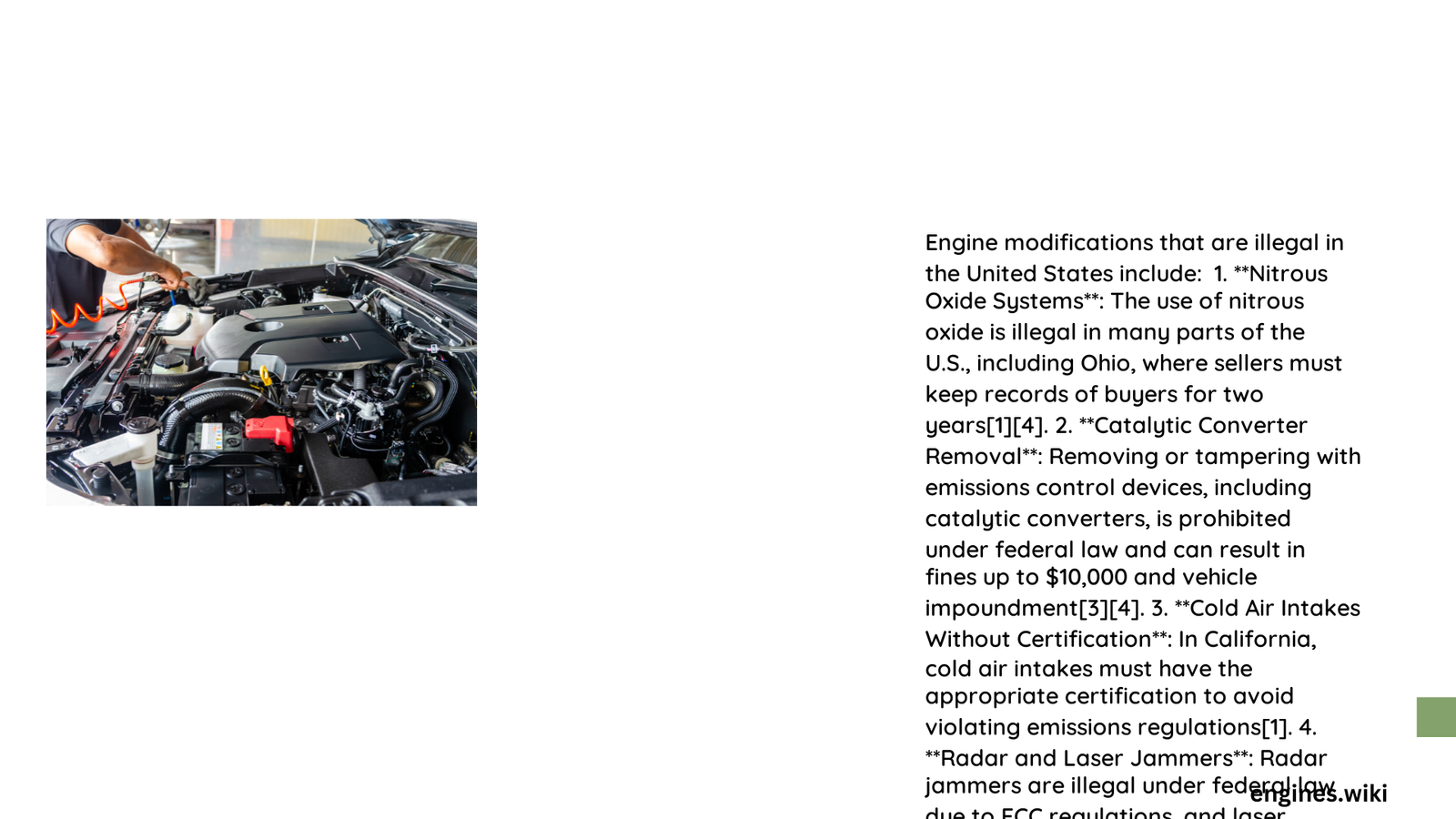Engine modifications can transform vehicle performance, but many alterations violate federal and state regulations. The Clean Air Act strictly prohibits modifications that compromise emissions control systems, with potential penalties ranging from substantial fines to criminal prosecution. Vehicle owners and automotive enthusiasts must understand the legal boundaries of engine modifications to avoid significant legal and financial risks.
What Specific Engine Modifications Violate Federal Regulations?
Engine modifications that compromise emissions control systems are fundamentally illegal. The Environmental Protection Agency (EPA) categorizes several critical modifications as prohibited:
Prohibited Electronic Control Unit (ECU) Modifications
| Modification Type | Legal Status | Potential Consequences |
|---|---|---|
| ECU Software Reprogramming | Illegal | Fines up to $48,192 |
| Hardware ECU Replacement | Illegal | Potential Criminal Charges |
| Emissions Control Bypass | Strictly Prohibited | Civil Penalties |
Why Are Some Engine Modifications Considered Illegal?
The primary reasons for classifying engine modifications as illegal include:
- Emissions Control Compromise: Modifications that reduce the effectiveness of factory-installed emissions systems
- Air Quality Impact: Potential increase in harmful pollutant emissions
- Vehicle Safety Concerns: Alterations that might compromise manufacturer-designed safety parameters
What Specific Modifications Trigger Legal Risks?
- Catalytic Converter Removal
- Complete removal is strictly prohibited
- Replacement with non-compliant aftermarket converters is illegal
-
Potential fine: Up to $4,819 per violation
-
Diesel Particulate Filter (DPF) Deletion
- Removing or bypassing DPF systems is federally illegal
- Significant environmental and legal consequences
-
Potential criminal prosecution
-
Exhaust System Modifications
- Alterations that reduce emissions control effectiveness
- Must maintain original manufacturer specifications
- Requires CARB or EPA certification for legal modifications
How Do State Regulations Impact Engine Modifications?

California Emissions Standards
California maintains the most stringent regulations:
– Requires Executive Order (EO) for aftermarket parts
– Stricter enforcement compared to federal standards
– Mandatory compliance for all vehicle modifications
Enforcement and Penalties
Potential Legal Consequences:
– Civil penalties up to $48,192 per violation
– Criminal fines potentially exceeding $55,500
– Possible vehicle registration suspension
– Mandatory emissions system restoration
Recommended Compliance Strategies
- Consult certified automotive professionals
- Verify modifications with EPA/CARB guidelines
- Maintain original emissions control systems
- Use CARB-certified aftermarket parts
Expert Recommendations
Vehicle enthusiasts should:
– Prioritize legal performance enhancements
– Work with certified automotive specialists
– Understand local and federal modification regulations
– Invest in compliant performance upgrades
Conclusion
Navigating engine modification regulations requires careful research and professional guidance. While performance enhancements are appealing, legal compliance remains paramount to avoid substantial financial and legal risks.
